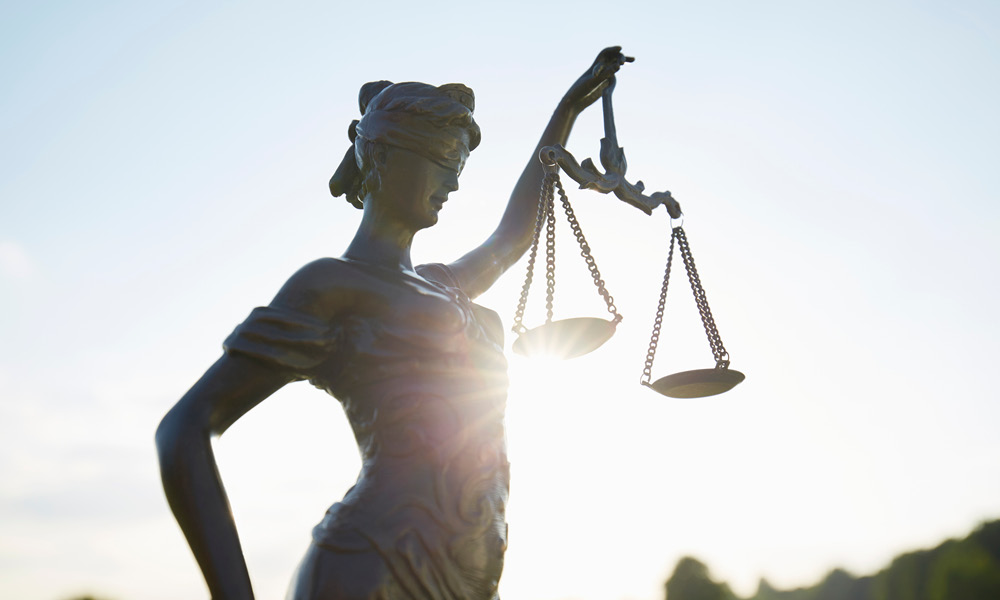Pell v The Queen [2020] HCA 12 (7 April 2020) concerned offences alleged to have been committed by the applicant, Mr Pell, in St Patrick’s Cathedral, East Melbourne, in 1996 and 1997. The offences were allegedly committed after the celebration of Sunday solemn mass and within months of Mr Pell’s installation as Archbishop of Melbourne. The victims of the alleged offending were two cathedral choirboys ‘A’ and ‘B’.
Following a trial before the County Court of Victoria, Mr Pell was found guilty by a jury and convicted of one charge of sexual penetration of a child under 16 years and four charges of committing an act of indecency with or in the presence of a child under the age of 16 years. He appealed to the Court of Appeal of the Supreme Court of Victoria. That appeal, by majority, was dismissed.
In the High Court, Mr Pell contended that the Court of Appeal majority had erred in two ways. First, by finding that their belief in A required Mr Pell to establish that the offending was impossible in order to raise and leave a doubt. Second, by concluding that the jury verdicts were not unreasonable when there was a reasonable doubt as to the existence of any opportunity for the offending to have occurred.
The High Court unanimously accepted that the Court of Appeal majority erred. The High Court said that the unchallenged evidence of Mr Pell’s movements after the mass, his always being accompanied within the cathedral, the timing of the alleged assaults and the priests’ sacristy being a “hive of activity” after mass, gave rise to compounding improbabilities which required the jury to have entertained a doubt as to Mr Pell’s guilt.
The High Court said that, notwithstanding that the jury found A to be a credible and reliable witness, the evidence as a whole was incapable of excluding a reasonable doubt as to Mr Pell’s guilt. In relation to all five charges, there was a significant possibility that an innocent person had been convicted.
Kiefel CJ, Bell, Gageler, Keane, Nettle, Gordon and Edelman JJ jointly. Appeal from the Court of Appeal of the Supreme Court of Victoria allowed.
Evidence – admissibility – evidence obtained improperly or in contravention of Australian law
Kadir v The Queen; Grech v The Queen [2020] HCA 1 (5 February 2020) were two appeals concerning the admissibility in a criminal prosecution of evidence obtained unlawfully, and of evidence obtained as a result of that unlawfully obtained evidence. The appeals focused on s138(3)(h) of the Evidence Act 1995 (NSW) which required the court to take into account the difficulty (if any) of obtaining evidence without impropriety or contravention of an Australian law.
The appellants, Mr Kadir and Ms Grech, were charged with acts of serious animal cruelty. At trial, the prosecution proposed to tender several video-recordings made unlawfully by a person acting on behalf of Animals Australia. As a result of those recordings, a search warrant for Mr Kadir’s property was executed and material supportive of the prosecution case obtained. The same person who made the video-recordings also attended Mr Kadir’s property and had conversations with him in which he allegedly made certain admissions.
The trial judge rejected all three categories of evidence. The respondent appealed to the Court of Criminal Appeal of the Supreme Court of New South Wales. That court found that the trial judge’s assessment was flawed, and concluded that the first videorecording, the search warrant evidence and admissions were all admissible. The Court of Criminal Appeal assumed that proof that it would have been difficult to lawfully obtain the surveillance evidence was a factor which weighed in favour of admitting evidence obtained in deliberate defiance of the law.
The High Court said that the basis on which the parties and the courts below had approached s138(3)(h) was misconceived. Demonstration of the difficulty of obtaining evidence of animal cruelty lawfully did not weigh in favour of admitting evidence obtained in deliberate defiance of the law.
The trial judge’s conclusion that all of the surveillance evidence should be excluded was correct. The High Court determined the admissibility of the search warrant evidence and admissions itself, and concluded that the desirability of admitting that evidence outweighed the undesirability of admitting it.
Kiefel CJ, Bell, Keane, Nettle and Edelman JJ jointly. Appeal from the Court of Criminal Appeal of the Supreme Court of New South Wales allowed in part.
Customs and excise – customs tariff – tariff classification – whether Administrative Appeals Tribunal erred
Comptroller-General of Customs v Pharm-A-Care Laboratories Pty Ltd [2020] HCA 2 (5 February 2020) concerned the construction and application of provisions of the Customs Tariff Act 1995 (Cth) (the Tariff Act), which imposes duties of customs on goods imported into Australia. A dispute arose between the Comptroller-General of Customs and Pharm-A-Care Laboratories Pty Ltd about the tariff classification of goods imported into Australia from Germany. The goods were referred to as “vitamin preparations” and “garcinia preparations”.
At the Administrative Appeals Tribunal AAT), Pharm-A-Care contended that both preparations should be classified so as to be free of duty. The Comptroller-General contended that the preparations were to be classified so as to be dutiable at a rate of either 5%or 4%. The AAT, adopting the conventional two-staged approach to tariff classification explained in Re Gissing and Collector of Customs (1977) 1 ALD 144 (at 146), determined that both preparations were classifiable such that no duty was owed.
The Comptroller-General appealed to the Federal Court on numerous questions of law. The Full Court of the Federal Court dismissed the appeal. On appeal to the High Court, the Comptroller-General submitted that the AAT and the Full Court of the Federal Court had erred in their construction of the Tariff Act, specifically Note 1(a) to Chapter 30 of Sch 3. The High Court unanimously accepted that submission, but said that the AAT’s misconstruction of Note 1(a) was immaterial to the decision which it made, which was otherwise correct in law.
Kiefel CJ, Bell, Gageler, Keane and Gordon JJ jointly. Appeal from the Full Court of the Federal Court of Australia dismissed.
Constitutional law – power of Commonwealth Parliament to make laws with respect to naturalisation and aliens
Love v Commonwealth of Australia; Thoms v Commonwealth of Australia [2020] HCA 3 (11 February 2020) were two special cases concerning s51(xix) of the Constitution, which provides that the Commonwealth Parliament has power to make laws “for the peace, order, and good government of the Commonwealth with respect to… naturalisation and aliens”. The question for the High Court was whether an Aboriginal Australian, born overseas, without the statutory status of Australian citizenship and owing foreign allegiance, is an alien in Australia within the meaning of s51(xix).
The plaintiffs, Mr Love and Mr Thoms, were born overseas. They had both lived in Australia for substantial periods as holders of visas which permitted their residence but were subject to revocation. They had not sought Australian citizenship. Their visas were cancelled under s501(3A) of the Migration Act 1958 (Cth) because they were each convicted of a criminal offence and sentenced to a term of imprisonment of 12 months or more. On cancellation of their visas they became unlawful non-citizens and liable to removal from Australia.
Detention of unlawful non-citizens and their removal from Australia was provided for in ss189 and 198 of the Migration Act. All parties agreed that the plaintiffs were not subject to those sections if they were outside the scope of s51(xix), pursuant to which ss189 and 198 were enacted.
By majority, the High Court said that Aboriginal Australians (understood according to the test in Mabo [No.2]) were not within the reach of the aliens power in s51(xix) of the Constitution. While the majority could not agree whether Mr Love was Aboriginal on the facts, this was a difference about proof, not principle.
Bell, Nettle, Gordon and Edelman JJ separately concurring. Kiefel CJ, Gageler and Keane JJ separately dissenting.
Corporations – meaning of ‘officer’ of corporation
Australian Securities and Investments Commission v King [2020] HCA 4 (11 March 2020) was concerned with the construction of the word ‘officer’ as defined in s9 of the Corporations Act 2001 (Cth) (the Act). The first respondent, Mr King, was an executive director of MFS Ltd, a publicly listed company and the parent company of the MFS Group. He was the CEO of MFS Ltd until his resignation on 21 January 2008. Until that date, he was also, in effect, the CEO of the MFS Group. He was a director of the second respondent, MFSIM, until 27 February 2007.
On 30 November 2007, $130 million was paid by MFSIM to an entity acting as the treasury company for MFS Group. On the same day it received the $130 million, the treasury company paid $103 million to Fortress Credit Corporation (Australia) II Pty Ltd. ASIC claimed that MFSIM breached its duties under s601FC(1) of the Act, and had provided a financial benefit to a related party in contravention of the Act. ASIC contended that Mr King was liable under s601FD of the Act as an ‘officer’ of MFSIM.
Although he had ceased to be a director of MFSIM on 27 February 2007, ASIC’s case was that Mr King nonetheless remained an ‘officer’ of MFSIM until 21 January 2008 as he fell within para (b)(ii) of the definition of ‘officer of a corporation’ in s9 of the Act, being “a person…who has the capacity to affect significantly the corporation’s financial standing”.
The primary judge was satisfied that Mr King was an ‘officer’ of MFSIM because he had the capacity to affect significantly MFSIM’s financial standing. Mr King appealed. The Court of Appeal of the Supreme Court of Queensland considered that to be an officer required holding a recognised position with rights and duties attaching to it, which had not been proven.
The High Court said that para (b)(ii) of the definition of ‘officer’ in s9 of the Act was not limited to those who hold or occupy a named office, or a recognised position with rights and duties attached to it, and the Court of Appeal had therefore applied the wrong test.
Kiefel CJ, Gageler and Keane JJ jointly. Nettle and Gordon JJ jointly concurring. Appeal from the Court of Appeal of the Supreme Court of Queensland allowed.
David Kelsey-Sugg is a Victorian barrister, ph 03 9225 6286, email dkelseysugg@vicbar.com.au. The full version of these judgments can be found at austlii.edu.au.
This story was originally published in Proctor June 2020.













Share this article